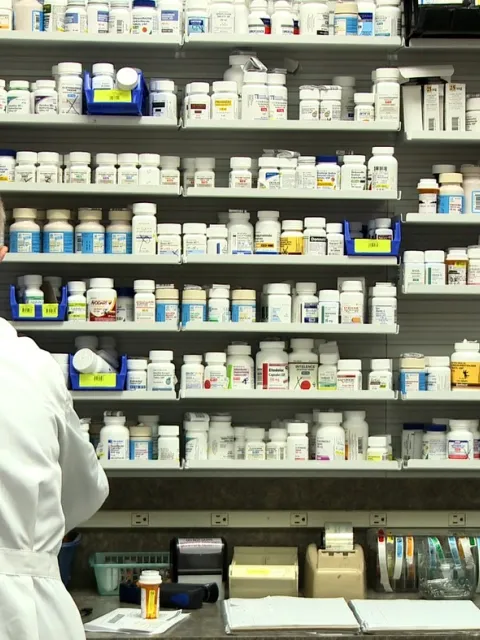UICC welcomes new Lancet series highlighting threat of AMR to cancer care
A new series of papers by The Lancet released on 23 May 2024 sheds light on the significant impact of antimicrobial resistance (AMR) on global health and cancer treatment, particularly in low- and middle-income countries.

The increasing burden of AMR, particularly in low- and middle-income countries underscores the urgent need for coordinated global action for sustained access to effective antibiotics, improve infection prevention and control, and enhance patient engagement.
UICC welcomes the release of a new Lancet series of papers on the devastating impact of antimicrobial resistance (AMR) on global health and cancer treatment outcomes, particularly in low- and middle-income countries (LMICs) and the need for sustainable access to effective antibiotics.
The series, published on 23 May 2024, provides crucial evidence and analysis on the escalating AMR crisis, which the World Health Organization (WHO) has declared one of the top 10 global public health threats facing humanity.
Read the Lancet series papers on AMR
AMR is estimated to have played a role in nearly 5 million deaths globally in 2019 alone. For the cancer community, AMR poses a particularly grave threat.
Cancer patients are more prone to infections, this is due to the various factors. The cancer itself can cause psychological stress, and treatments like chemotherapy can put the immune system under a lot of pressure. In particular, drug resistant infections can have a negative impact on cancer care. For example, almost 27% of infections in patients with blood cancer undergoing chemotherapy are resistant to the antibiotics used to prevent infections. This resistance leads to more complications, longer hospital stays, and higher treatment costs.
"This seminal series is a wake-up call for all of us in the cancer and global health communities. AMR is undermining our hard-won advances against cancer and other deadly diseases. Urgent, coordinated action is needed to address this silent pandemic."
– Dr Cary Adams, CEO of UICC
Key findings and topics
1. The Global Burden of AMR: The Lancet series notes that bacterial infections cause approximately 7.7 million deaths annually, with 4.95 million of these deaths linked to antibiotic-resistant pathogens. This growing threat significantly impedes progress towards global health goals, including the Sustainable Development Goals (SDGs).
2. Vulnerable Populations: The series highlights that the burden is disproportionately high in low- and middle-income countries, where access to effective antibiotics and healthcare infrastructure is often limited.
3. Essential Interventions: Crucial interventions identified include vaccination programmes, improved access to water, sanitation, and hygiene (WASH), and robust infection control measures.
4. Sustainable Access to Antibiotics: A central theme of the series highlights the urgent need for sustainable access to effective antibiotics and diagnostics. This involves not only expanding development of new medicines, diagnostics and vaccines but also ensuring that existing antibiotics remain effective through responsible use and global stewardship efforts.
5. Lancet's 10-20-30 by 2030 Goals: The series introduces the Lancet's ambitious "10-20-30 by 2030" targets,:
- 10% reduction in mortality caused by bacterial infections.
- 20% reduction in inappropriate human antibiotic use
- 30% reduction in inappropriate animal antibiotic use.
7. Patient and Survivor Advocacy: A poignant aspect of the series is the inclusion of personal accounts from AMR survivors and their caregivers. These stories underscore the human impact of AMR and advocate for patient-centred approaches in policy-making and healthcare strategies.
8. Call to Action: The series calls for a unified global response to combat AMR, emphasising the need for increased funding, research, and political will. Upcoming events like the 2024 UN General Assembly and the 4th High-Level Ministerial Conference on AMR in Riyadh are highlighted as platforms for advancing this agenda.
The series also calls for the establishment of an Independent Panel on Antimicrobial Access and Resistance.
UICC fully supports the recommendations outlined in the series and calls for measurable and impactful action to address AMR.
Read more about UICC’s work on AMR and its recent UN side-event in New York
Last update
Monday 27 May 2024
